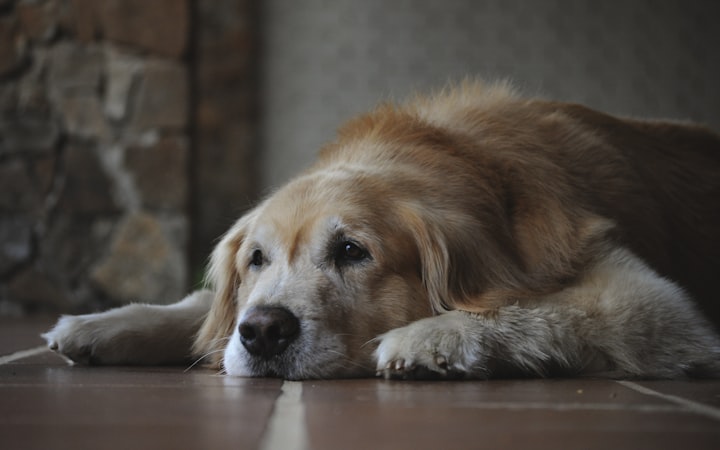How to Take Care of Senior Dogs
Senior Dogs

When you look at a litter of the cutest little French Bulldog puppies, it’s hard to imagine that they’ll become senior dogs at some point. And yet, they will — a sweet old thing that’s slowly aging and requires more attention and care than before.
Don’t worry—having an old dog is pretty awesome. By the time they age into their senior years, your dog and you will have formed an incredibly strong and loving bond. And that’s precisely why we’re going to provide a few tips for taking care of older dogs right here!
Is My Dog A Senior Dog?
There’s no firm threshold for when your doggo is considered a senior. However, most vets and experts will tell you that senior dogs are generally those older than six or seven. This can vary depending on the specific dog breed. Usually, smaller breeds age slower than large ones so you may have some wiggle room there.
In practice, though, dogs age as differently as humans. Some of us are tired of everything by the time we’ve reached our golden years, while others go into them as spry as ever.
However, you can do some things for your favorite pet before they reach their golden years to help them be comfortable and healthier. Just like humans, you should focus on their fitness and health while they’re still a puppy. They’ll enter their senior years with a better health baseline.
Remember — if your dog could use more strength or be healthier with less weight, you’ll achieve those goals much more easily when they’re younger.
Taking Care of Senior Dogs
Have you noticed how your daily needs have changed as you’ve aged? The same thing happens to dogs. In your younger years, you could go through an entire pizza and a six-pack of beer without blinking an eye; for seniors, junk food is generally a no-no. You go to the doctor’s office more often, and you can’t work out as hard as before.
All of these things apply to your precious pet too. They’ll need a different exercise routine to stay fit without injuring themselves, and you can forget about taking them to the vet’s just once a year. Soon enough, they’ll need more regular checkups.
Fitness And Senior Dogs
You can do all sorts of fun physical activities with younger dogs. Many marathon runners and fitness lovers train with their dogs. Some dogs even complete marathons with their owners. However, over time, you’ll start noticing that your dog’s recovery times are longer. Soon enough, joint soreness will become harder to deal with too.
That doesn’t mean your senior pawed pal can no longer work out—you just need to adjust their workout routine to their current abilities. Also, remember that fitness is about more than exercise; an older doggo needs appropriate nutrition for their age.
So, how do you determine your pet’s fitness level? We recommend you consult your vet for this and any other questions. They’ll professionally ascertain the dog’s weight and whether it is appropriate for their breed and age.
If there's any cause for concern, your vet will point it out. Also, they’ll tell you if your dog needs to lose or gain a couple of pounds to get back into shape. Your vet may prescribe a specific workout routine for the dog besides giving you a healthier eating plan.
There’s another way dog aging is similar to ours — their metabolism starts slowing down after a while. Just like us, dogs also become more sedentary over time. Their movements become less explosive, and they progressively need more rest over time.
Helping Your Doggo Lose Weight
If your little pawed pal is a hearty eater — as most of them are — you can do a bunch of things to make their diet healthier. For example, you can occasionally give them veggies and fruits instead of their usual treats. Apple slices, blueberries, and carrots are all great substitutes for pups who are more used to high-cal treats.
Also, it’s essential to be consistent with walks. Yeah, we all lead busy lives, the weather gets awful, our schedules get cramped — and our backyards are right there! However, senior dogs need exercise too, and daily walks are necessary. You want their joints to stay movable, get their heart pumping, and work out their muscles. Remember, fitness is equally about exercise and dieting
Finally, you should be more careful with table scraps. Every dog owner is guilty of slipping their favorite non-human a few scraps under the table. However, those scraps add up, especially when other people in the house are doing it too. And seeing as senior dogs commonly suffer from digestive issues, managing their food intake becomes even more critical. If their veterinarian prescribes a specific diet, you must help your dog stick to it.
About the Creator
Portrait My Pet
Portrait My Pet Blog, we consider our furry companions as family members. Whether you're a pet owner or embarking on the exciting journey of pet parenthood for the first time, our blog is your trusted source for all things pet related.






Comments
There are no comments for this story
Be the first to respond and start the conversation.